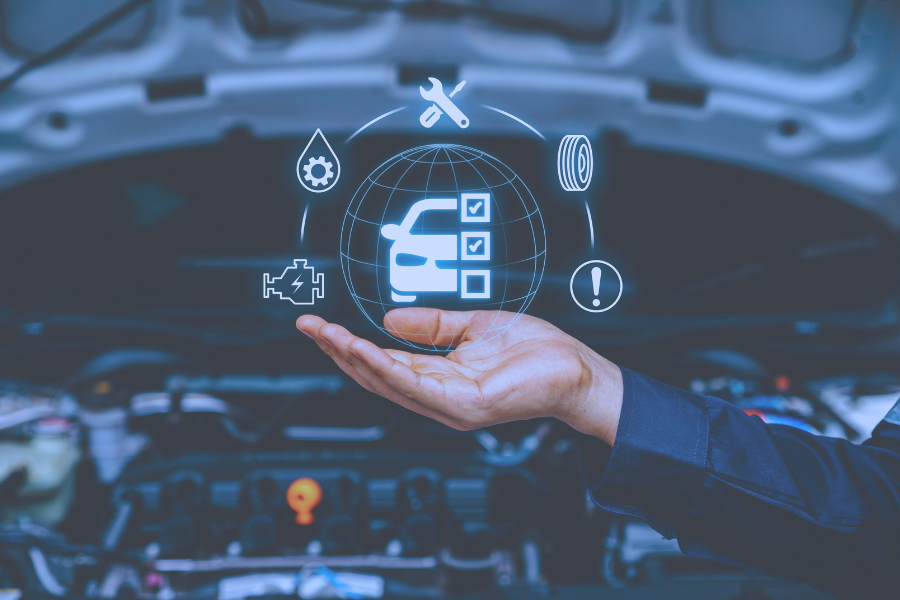Commercial auto insurance is vital protection for businesses that rely on vehicles for their operations. Whether your company owns a fleet or occasionally uses vehicles for deliveries, having the right coverage ensures that your business remains financially secure in the event of an accident. This type of insurance helps businesses avoid costly expenses related to property damage, medical bills, and liability claims that could otherwise disrupt operations.
For agencies with an overwhelming workload related to insurance operations, insurance agency back office support services can help streamline administrative tasks and keep everything in order. This allows businesses to focus on growth while ensuring that their insurance needs are met efficiently. In this article, we will explore what commercial auto insurance covers and why it’s essential for any business that operates vehicles.

How Does Commercial Auto Insurance Work?
Before discussing what it covers, let’s briefly define it and how it works. Commercial auto insurance is designed to provide coverage for vehicles used in business operations, differing from personal auto insurance in terms of scope and pricing. While personal auto insurance covers your own personal use, commercial auto insurance covers vehicles used for business purposes, including deliveries, transporting goods, or even driving employees to meetings.
The coverage requirements vary depending on the type of business and the state regulations. The cost of insurance premiums is influenced by several factors, such as the type of vehicle, how it’s used, the number of vehicles owned, and the driving history of those behind the wheel. The claims process for commercial auto insurance typically requires documentation and proof of the incident, making it important to have an organized approach to handling claims.
What Does Commercial Auto Insurance Cover?
Commercial auto insurance covers various risks for business vehicles, including accidents, property damage, injuries, and theft. Depending on the policy, businesses can customize coverage to address the unique needs of their operations. Now, let’s dive into the different types of coverage that commercial auto insurance provides.
Liability Coverage
One of the key components of commercial auto insurance is liability coverage. This type of coverage helps protect your business in the event you’re responsible for injuries or property damage caused to others while operating a business vehicle. Bodily injury liability covers the medical expenses of the other party involved in an accident where your business vehicle is at fault.
Similarly, property damage liability covers any damage caused to the property of another person, whether it’s another vehicle or a structure like a fence or building. Without this coverage, your business could be responsible for paying large out-of-pocket costs, which could affect its financial health.
Physical Damage Coverage
While liability coverage protects third parties, physical damage coverage safeguards your own vehicles. This includes collision coverage, which helps cover repair costs for your vehicle after an accident, regardless of who is at fault.
If the vehicle is damaged by something other than a collision—such as theft, vandalism, or natural disasters—you’ll need comprehensive coverage. This type of coverage ensures that your business doesn’t incur large expenses for repairing or replacing its vehicles, keeping operations running smoothly even after an unexpected event.
Uninsured and Underinsured Motorist Coverage
Another crucial aspect of commercial auto insurance is uninsured and underinsured motorist coverage. This coverage is vital because it protects your business in case you’re involved in an accident with a driver who either has no insurance or doesn’t have enough coverage to pay for the damages.
In these situations, this type of coverage will help cover medical expenses, property repairs, and other costs that would otherwise fall on your business. It’s a necessary protection, particularly in areas where uninsured drivers are common.
Medical Payments Coverage (MedPay)
Medical payment coverage, also known as MedPay, is another important element of commercial auto insurance. It covers the medical costs of the driver and passengers in your business vehicle, regardless of who caused the accident.
This can include hospital bills, surgeries, and even funeral expenses in the worst-case scenario. For businesses that rely on employees traveling frequently for work, MedPay offers a layer of protection for both workers and passengers.
Hired and Non-Owned Vehicle Coverage
For businesses that don’t own all of their vehicles but still need them for business purposes, hired and non-owned vehicle coverage is necessary. Hired vehicle coverage applies when a business rents or leases vehicles for work purposes. If an accident occurs while using a rented vehicle, this coverage helps pay for the damages.
On the other hand, non-owned vehicle coverage protects a business when employees use their own personal vehicles for company-related tasks. This coverage ensures that if an employee is involved in an accident while driving for work, your business isn’t left liable for the damages.
Cargo and Trailer Coverage
Businesses that transport goods need specialized coverage for their cargo and trailers. Cargo coverage ensures that the goods being transported are protected in case of an accident, theft, or damage.
Similarly, trailer coverage helps cover any damage to trailers used for transporting goods. This type of coverage is particularly important for logistics, delivery, or transportation companies, where the goods being transported are often valuable and critical to business operations.

Other Optional Coverages
Finally, you can include these optional coverages in your insurance policy to further protect your business:
- Rental reimbursement – this covers the cost of renting a vehicle while your business vehicle is being repaired.
- Roadside assistance – provides coverage for unexpected breakdowns or emergencies, such as towing or fuel delivery.
- Gap insurance – covers the difference between the actual cash value of a totaled vehicle and the amount still owed on a loan or lease, preventing financial loss.
Conclusion
In summary, understanding what commercial auto insurance covers is crucial for any business that operates vehicles. From liability and physical damage coverage to protecting against uninsured drivers and safeguarding cargo, commercial auto insurance provides a comprehensive safety net.
It’s important to assess your business’s specific needs and ensure that you have the right coverage in place. For businesses struggling with the complexities of managing insurance paperwork and claims, outsourcing insurance back office services can streamline the process and reduce administrative burdens, allowing companies to focus on their core operations while staying protected.

With a strong background in the marketing industry and healthcare leadership roles, Filip is responsible for CLICKVISIONBPO’s sales strategies and onboarding new clients. With a passion for sharing insights gained from his experience, he also shares valuable knowledge through industry related articles.
